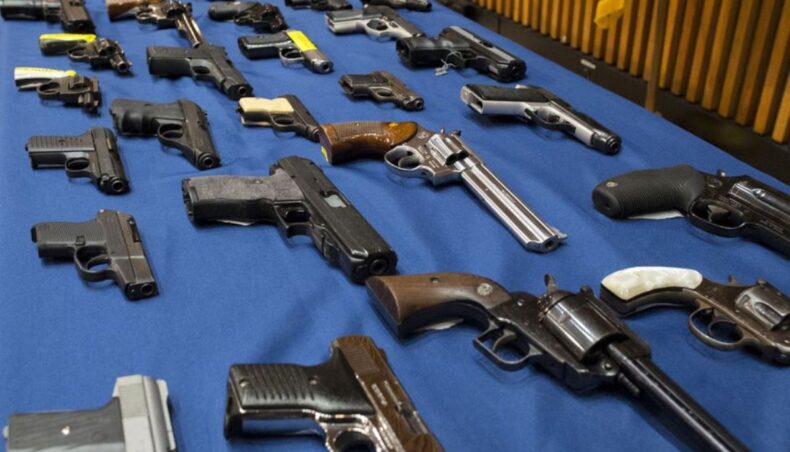On Friday, the state of New York enacted a bill that prohibits firearms in many public areas, including Times Square, and calls for gun license applicants to demonstrate their shooting prowess and submit their social media profiles for inspection by law enforcement.
The landmark U.S. Supreme Court decision last week that overturned New York’s onerous gun-license rules compelled the legislature to hold an emergency session and adopt the law. For the first time, the court’s conservative majority held that carrying a weapon in public for self-defense is protected by the U.S. Constitution.
Democratic leaders in New York have denounced the decision and the court, arguing that if more individuals carry firearms, there would be an increase in gun violence.
They acknowledged that in order to comply with the verdict, the state’s century-old permit system must be relaxed, but they made an effort to maintain as many limits as they could in the interest of public safety. Some will probably be the focus of more legal disputes.
The court determined that the previous license system in New York, which goes back to 1911, provided officials too much latitude in deciding whether to grant permission.
Democratic New York Governor Kathy Hochul, who called for the extraordinary session of the legislature, said that thanks to the state’s strict gun licensing laws, New York had the fifth-lowest rate of firearm fatalities among the 50 states in the country.
‘Pen mightier than Sword’
During a press conference in Albany, the state’s capital, where lawmakers were debating the bill, she stated, “Our state will continue to protect New Yorkers safe from harm, even despite this setback from the Supreme Court.
They may believe that they can alter our life with the click of a pen, but we also have pens”.
In its decision, the court acknowledged that carrying a handgun could be prohibited in some “sensitive settings,” but it also cautioned lawmakers against using the term too broadly.
Additionally, the court made it simpler for pro-gun organizations to get a restriction overturned. When the Second Amendment to the United States Constitution was established in the 18th century, allowing states to maintain militias and outlining a right to “keep and bear Arms,” it was decided that any laws governing guns were likely to be unconstitutional.
“Easier to get a concealed-carry license”
The law passed on Friday makes it a felony crime to carry a gun into a new list of sensitive locations, including public transportation, the New York City subway, places where alcohol or marijuana is consumed, polling places, medical facilities, places of worship, libraries, playgrounds, parks, zoos, schools, colleges, summer camps, addiction-support centers, homeless shelters, nursing homes, and Times Sq.
The prohibitions on sensitive places do not apply to law enforcement officers or registered security guards.
Republican politicians objected to the law’s passage, arguing that it places the right to bear arms behind other constitutional freedoms like freedom of speech and religion. The measure is slated to go into effect on September 1.
During the discussion, Republican Assemblyman Mike Lawler remarked, “Now, it’s going to be easier to get a concealed-carry license”. You won’t be able to carry it anyplace, though.
‘Clear and blatant violation’
The National Rifle Association called New York’s law a “flagrant violation” of the ruling by adding more restrictions on the right to self-defense, indicating it may soon face legal challenges.
The National Rifle Association is a significant gun-owners rights organization, and its local affiliate served as the primary plaintiff in the Supreme Court case.
The New York NRA state director, Darin Hoens, stated in a statement that “Gov. Hochul and her anti-Second Amendment supporters in Albany have defied the United States Supreme Court with a purposefully spiteful rewriting of New York’s concealed carry legislation.”
According to the new licensing regulations, applicants must meet the licensing officer in person for an interview—typically a judge or a police officer—and give the contact information for some members of their immediate family and any adults they reside with.
It is illegal to bring a pistol into a private business unless the establishment explicitly states that it welcomes concealed weapons.













